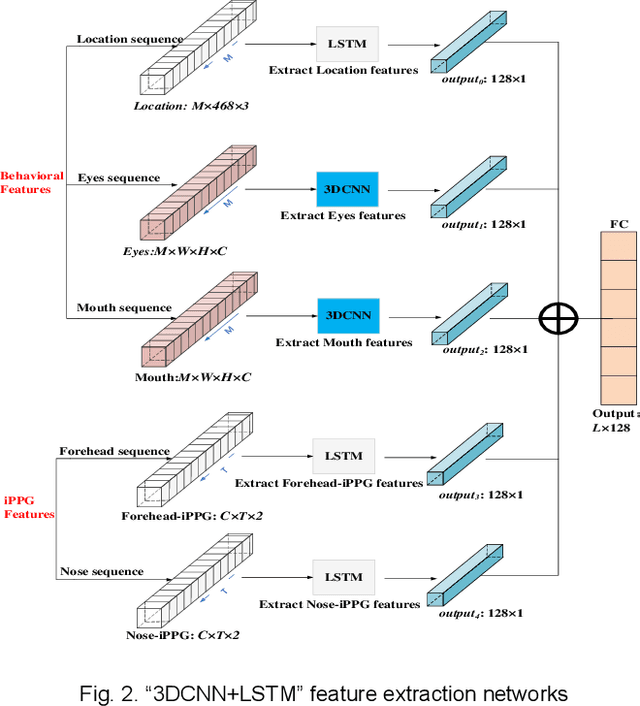SFF-DA: Sptialtemporal Feature Fusion for Detecting Anxiety Nonintrusively
Paper and Code
Aug 12, 2022



Early detection of anxiety disorders is essential to reduce the suffering of people with mental disorders and to improve treatment outcomes. Anxiety screening based on the mHealth platform is of particular practical value in improving screening efficiency and reducing screening costs. In practice, differences in mobile devices in subjects' physical and mental evaluations and the problems faced with uneven data quality and small sample sizes of data in the real world have made existing methods ineffective. Therefore, we propose a framework based on spatiotemporal feature fusion for detecting anxiety nonintrusively. To reduce the impact of uneven data quality, we constructed a feature extraction network based on "3DCNN+LSTM" and fused spatiotemporal features of facial behavior and noncontact physiology. Moreover, we designed a similarity assessment strategy to solve the problem that the small sample size of data leads to a decline in model accuracy. Our framework was validated with our crew dataset from the real world and two public datasets, UBFC-PHYS and SWELL-KW. The experimental results show that the overall performance of our framework was better than that of the state-of-the-art comparison methods.
 Add to Chrome
Add to Chrome Add to Firefox
Add to Firefox Add to Edge
Add to Edge